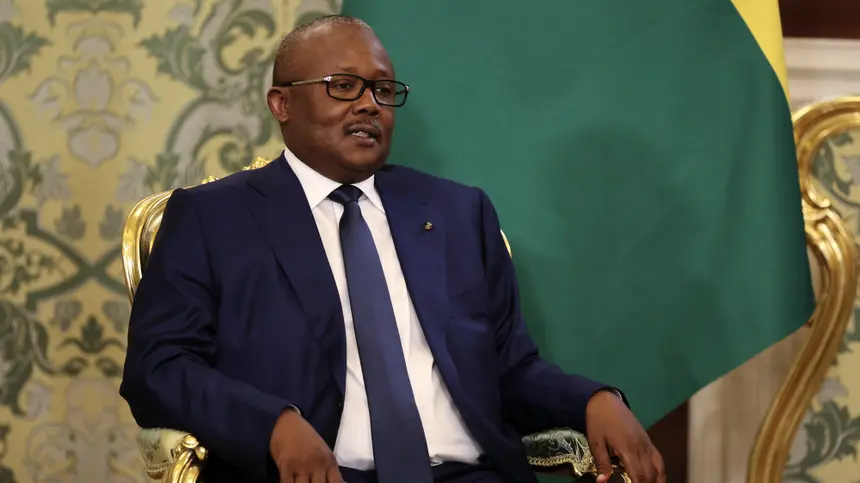Gambiaj.com – (Bissau, Guinea-Bissau) – President Umaro Sissoco Embaló announced on Monday that Guinea-Bissau will impose a 10% customs tariff on products imported from the United States, invoking the principle of reciprocity in response to earlier measures taken by the U.S. President Donald Trump.
The Guinean leader made the announcement while inspecting the construction of a new state-of-the-art hospital in the capital, Bissau, funded by the United Arab Emirates. Speaking to journalists on the sidelines of the visit, Embaló emphasized that Guinea-Bissau would not accept being treated as a “small state.”
“I have already said that there are no small states, only small countries,” Embaló declared. “We will also set tariffs for them. It is vice versa (…). Trump is president of the United States; Umaro Sissoco Embaló is president of Guinea-Bissau.”
The president’s comments come in response to a 10% tariff imposed by the Trump administration on goods from Guinea-Bissau — a move that Embaló described as “normal” but deserving of a reciprocal reaction.
Embaló instructed his Minister of Economy, Soares Sambu, who accompanied him on the hospital site visit, to identify U.S. imports that will be subject to the new tariff.
Although Embaló did not specify which goods would be affected, he underscored the broader point that Guinea-Bissau would act with equal sovereignty in matters of international trade. “We’ll talk later,” he added, referring to possible diplomatic discussions with Washington.
The issue of U.S.-Guinea-Bissau relations has been marked by controversy since 2023, when the United States cited the country for alleged failures in combating human trafficking. At the time, Embaló claimed Guinea-Bissau had responded by issuing a decree to “sanction” the U.S. in turn.
“It’s like when they sanctioned us, we also produced a decree and sanctioned the United States. Simple,” he said on Monday. “Then we talked, we understood that it was a mistake [on the part of the United States], and we also lifted our sanctions.”
However, U.S. officials have contested that version of events. In a statement made on March 18 after meeting with President Embaló in Bissau, Michael Raynor, the U.S. Ambassador to Senegal and Guinea-Bissau, denied that sanctions were ever imposed.
“I would like to thank you for the opportunity to clarify that there have never been any sanctions imposed on Guinea-Bissau regarding human trafficking or any other sanctions,” said Raynor, although he acknowledged that there had been restrictions on bilateral partnerships.
Raynor further stated that those restrictions were lifted in 2024 following Guinea-Bissau’s improved efforts in fighting human trafficking. The country has since been removed from the lowest category on that issue in the U.S. State Department’s evaluation.
Despite the diplomatic back-and-forth, President Embaló appears determined to assert Guinea-Bissau’s standing in international relations. His insistence on reciprocal measures signals a tougher stance, especially as the country continues to navigate its place in the global economic order.
“We understood that it was a mistake,” he said, referring to the previous diplomatic spat. “All of this always in a dynamic that there is no such thing as a small state.”
The 10% tariff policy is expected to take effect once the Ministry of Economy finalizes its list of affected imports.










